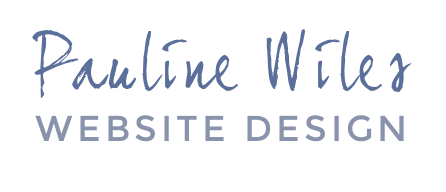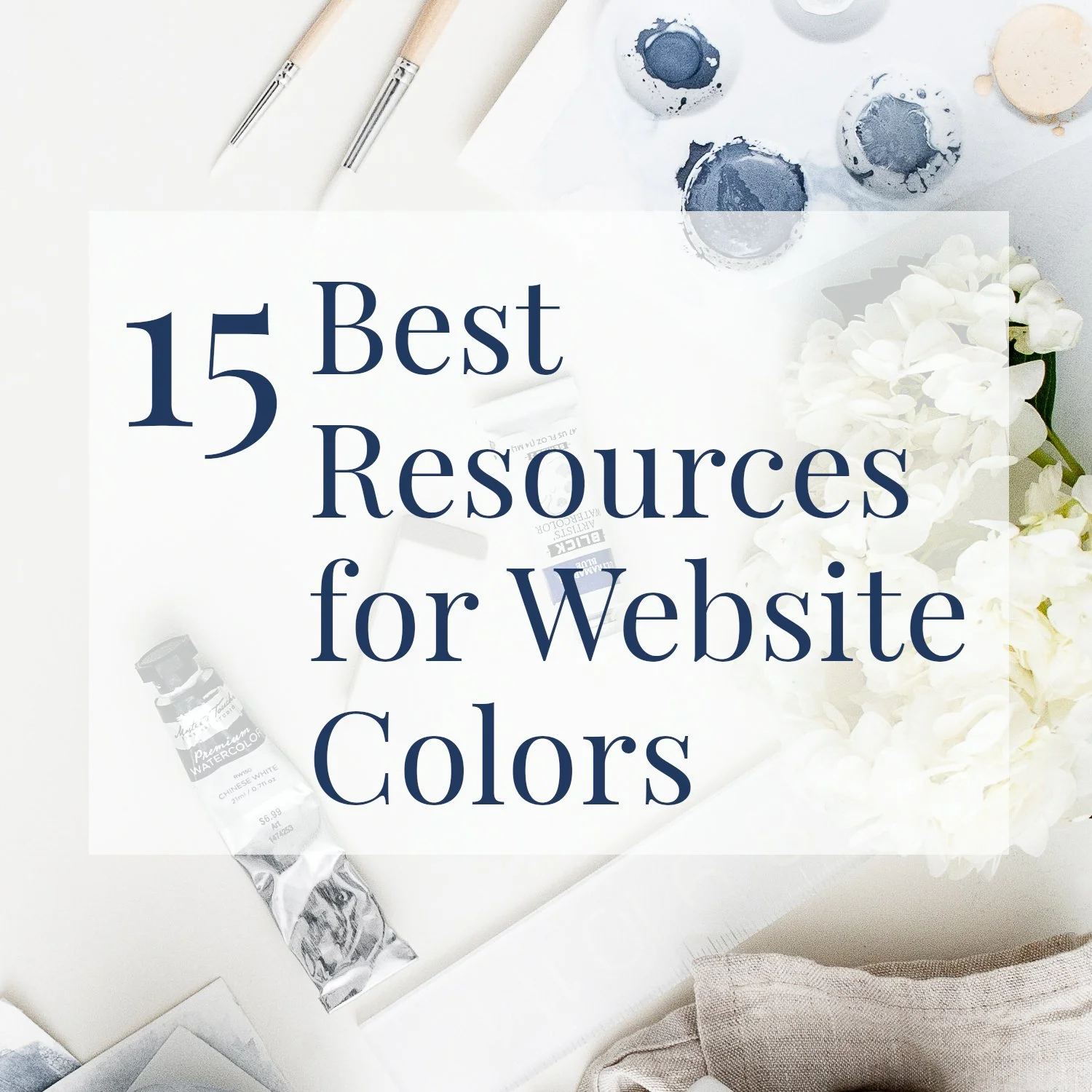How to Market Your Business Without Sacrificing Your Mental Health
Expert Interview
• This article contains affiliate links •
If you’ve landed on this website, there’s a good chance that you arrived here through a search engine.
And the fact that my information showed up in your Google search results is only partly due to my concerted efforts to produce relevant, helpful content. The rest is down to what I learned from Meg Casebolt, who runs a thriving SEO marketing agency. Last year, under Meg’s guidance, I got serious about SEO. And it’s made a huge difference to my business.
One nugget of wisdom from Meg that I love is the long lifespan for the content you place on a blog, versus how short the life is of everything that you post on social media.
If I write a useful article and post it here, you might still find it (and get value from it) next year, or the year after. If I put the same information on social media, unless you see it today, it’s probably lost forever.
But a short shelf life isn’t the only aspect of social media that concerns Meg. She has personal experience of the addictive, always-on, comparison perils of popular social platforms. She launched a podcast where she interviews fellow entrepreneurs and small business owners who share their experiences in breaking free from the grip of social media.
And now, she’s turned that wisdom into a book.
Social Slowdown was published last week. It’s an invitation to imagine marketing your business without surrendering your sanity to the endless scroll of social media.
I’m delighted that Meg made time to answer my questions about her new book, and the process of publishing it.
What made you decide to write Social Slowdown?
After producing several research-based (podcast) episodes — specifically about the detrimental effects of social media, the economic tradeoffs, and the way it stands in for societal feedback — I realized that I thought about these topics differently than most of my peers in digital marketing. After 70+ interviews, I also started to see trends in the conversations that I couldn’t have predicted without having those conversations.
During our team’s annual review and planning session, I debriefed some of these episodes and thought to myself, “Hey, nobody else is talking about this, and I don’t want these episodes to get lost in the archives.” So I wanted to find a way to consolidate and process this information in a more manageable, thoughtful way that doesn’t require you to listen to days of conversations (as funny and entertaining as I might think I am).
I’m hoping that the results will pay off, not only in book sales (thus fueling my ego) but also in new people finding the book on Amazon or getting referrals from readers, then learning more about Love At First Search, which several of my guests have shared works for them.
Who do you think will benefit most from reading it?
Solopreneurs and microbusiness owners who feel like they have to “be everywhere,” but don’t necessarily have the resources. Not just the money for Facebook Ads, but also the time and energy and mental bandwidth to be constantly creating and consuming.
Also: people who are tired of being “on” all the time … whether they want to leave social media forever, set strong boundaries, or replace some of their social media time with alternative strategies.
Having interviewed dozens of entrepreneurs about their relationships with social media, what are some key themes that kept coming up?
One of the questions that I try to consistently ask most of my guests is, “How do your clients find you?” And the answer is very rarely social media -- typically it’s word-of-mouth referrals, podcast interviews, or SEO. Social media is a tool to keep in touch with people who have already heard about us, but it doesn’t get us in front of new people nearly as well as it used to.
You don’t advocate for leaving social media completely, but instead being more intentional. Can you share one or two of your favorite tips for incorporating boundaries?
Make an intentional strategy about how you want to engage on these platforms, including:
What you want to post about, and which topics are off-limits
Where you want to post, because you don’t have to be everywhere
How you want to post, directly on the app or through a scheduling tool. and
When you’ll log on, both for business engagement and personal enjoyment
Turn off notifications on your phone and computer, so that you decide when you want to engage with the apps rather than letting them always be pinging you to return.
If an account makes you feel inferior in any way, feel free to unfollow them. This isn’t a 3rd grade birthday party, you don’t have to invite the whole class.
Now, let’s peek into your process of bringing this book to life...
What advice would you have for someone who has a body of content that they’d like to turn it into a book?
Existing content is a really great place to start, but a book requires a lot more processing and polishing than the raw data. I had hundreds of hours of interviews and thousands of words of transcripts that I could use as building blocks, but that didn’t mean the book wrote itself!
Honestly, the idea of actually sitting down and writing a 100+ page book intimidated the heck out of me, which is why I hired my friend Lacy Boggs as a ghostwriter to help me build the outline, and she dug through the transcripts to write the first draft based on the source material.
Having a starter draft based on all my content made the process much simpler and less intimidating … but then I went line-by-line to revise almost everything, as well as adding more to fill in the gaps that the rough draft made evident.
It’s certainly easier than starting from scratch, but it’s still a huge undertaking!
Related podcast interview: Listen to a longer conversation with Lacy about how we worked together on the book.
Your business is Love At First Search. How do you help people there?
Love At First Search is an SEO agency helping businesses owned by folks from marginalized communities, specifically those most impacted by patriarchy, sexism and misogyny. My team and I help them show up in search results for exactly the solution their customers are looking for, precisely when they’re looking for it.
We support those business owners by providing custom SEO strategies so that they know exactly what to create (and how to create it) in their written, audio & video content in order to be found by their ideal clients in search results.
We also have training programs to educate solopreneurs and small teams in how to do their own SEO keyword research and content strategy.
(Pauline’s note: I enrolled in Attract & Activate in 2022, and warmly recommend it.)
So, now that you’re an author, what role do you think SEO should play for getting a book discovered? Is it different for a nonfiction title like this, versus fiction?
Just like Google, Amazon is a search engine, so I’m planning to do some work to optimize the product listing for search, just like I would optimize any other content (keywords, subtitle, reviews, etc).
Because I did keyword research in order to name the book — including finding terms like “quitting social media” and “take a social media break” and “digital detox” — I’m hopeful that when people search for those terms, the Google results will show both the podcast website and the book listing, so that I gain more authority for those terms because my work shows up for them twice
There are certainly similarities in terms of marketing and optimizing fiction vs. nonfiction, such as using keywords in promo content and making sure your categories are clear … but I also recognize that people looking for a book about marketing / business / self-improvement have very different expectations and criteria than people looking for my future romance novels. Both will include strong referral marketing strategies … but the key to both of them is being super clear about the premise and setting reader expectations.
How do you see this book fitting into your own marketing strategy for your business as a whole?
Three benefits:
Authority: I can literally say, “I wrote the book on this topic” and mean it. Even though I’m self-publishing, so I don’t have a big publishing house or editor to give me additional credibility and reach, there’s still a huge benefit and expertise to having a published book on a topic.
Clarity: Writing the book and going through endless rounds of edits helped me get super clear about my approach and unique perspective. It also forced me to research and support information that I’ve heard anecdotally and felt intuitively, which only strengthens all future conversations I have on this topic. Already, I feel like my messaging and positioning is stronger when I’m interviewed.
Discovery: I’m hopeful that new people will find me on Amazon, get introduced to my work and approach through the book, then seek out SEO services and additional content (I legit link to the podcast 50 times throughout the book, since I’m quoting directly from episodes).
Dr. Michelle Mazur explained how her book, 3 Word Rebellion, does this for her: “I run Amazon Ads to my book, because if people are on Amazon perusing books, they might buy it. So my book is a big driver for my business, which leads to sales calls. And if people show up on a sales call, and tell me that they have binged multiple episodes of my podcast, it is a sign that they’re ready to work with me. And podcast interviews are a big discovery tool for me. I’ve done a lot of podcast interviews over the past few years because it’s a great way for people to be introduced to my work and to the book. So those are my three main drivers for generating some leads and interest in my business.”
Aside from buying the book, how else can you connect with Meg?
For anyone who is interested in the power of SEO as a business marketing tool, Meg offers a free SEO Starter Kit here.
Thank you, Meg, for sharing your insights both on the subject matter of the book, and your process in bringing it to life!
•
Would you like me to design and build your SEO-optimized Squarespace website?
As a professional specializing in Squarespace website strategy and design, SEO is just one of the tools I use to create an attractive and effective home for your work. If you’d like technical expertise, marketing advice, and all of the implementation taken care of, consider hiring me.
After careful preparation together, I’ll design, build and launch your site in just 2-3 weeks. Learn more, and then schedule a chat.













